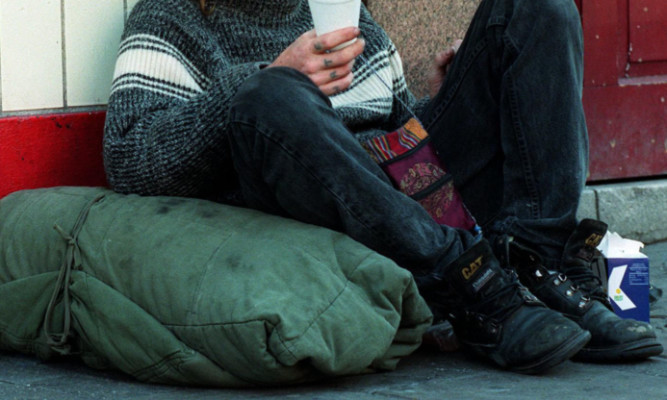Generations of Dundonians are trapped in a cycle of poverty that leads to homelessness, a major new report has found.
A two-year city-wide study led by the city’s churches and Dundee University looked at residents who have cried out for crisis aid over the past two years.
Almost 80% of those who offered insights into their lives were native Dundonians who chronicled descents into physical and mental ill health, drug and alcohol abuse, isolation and loneliness.
Worryingly, the study also found that many either believed there was no way out of their problems or had struggled to find the help they need to lift themselves out of destitution.
Dundee Lord Provost Bob Duncan, who unveiled the report, described it as “a hugely important document” and challenged organisations across the city to learn vital lessons from it.
During last year, more than 100 people with experiences of homelessness or under the threat of homelessness were interviewed to offer an important insight into the city’s woes.
All were users of the Dundee Drop In Network, representing a wealth of church and community projects, which led the study alongside Faith in Community Dundee and Dundee University.
The majority (79%) were found to be Dundee-born, which the report authors said suggested “that poverty reproduces within the city population rather than being an issue of external population”.
They revealed that money and benefits were the greatest areas of concern, with 78% claiming they struggled to find enough money to live highlighting sanctions as a key issue.
Unemployment (68%) was the second most serious concern, followed by food (60%) but the study also revealed that serious concerns over health (58%), loneliness (58%), mental health (56%) and stigma (47%) often followed.
Those in turn contributed to fears of a descent into alcohol or drug abuse (47%).
A significant percentage of those who took part appeared to believe they were in a lone fight, with no help likely.
That was particularly apparent with regards stigma (78%) and loneliness (74%) but also issues of daily living such as clothing (87%) and heating (86%).
Gordon Sharp of Faith in Community said: “There was a real desire to hear about the problems people face when they have to use drop-ins for food and information.
“This research gives a voice to many people who are often unheard and people who struggle to make ends meet in our communities for a variety of reasons.”
